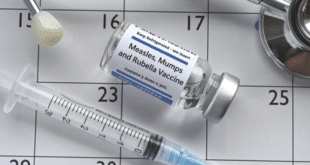Hypericum perforatum is also known as St. John’s Wort. Credit: Mike Bird. Pexels
How many of the natural remedies available for depression actually work? Journal of the American Medical Association published a major review in July 2025. Frontiers of Pharmacology The study analyzed over 200 clinical studies of 64 OTC products that are marketed for treating depression symptoms.
The research found that popular products such as St John’s Wort and saffron were the most effective. Probiotics and vitamin D also showed promise. They worked in some cases as well as antidepressants prescribed by doctors.
Some of the more popular items, like curcumin, melatonin or magnesium, had mixed results. Despite the popularity of herbal remedies like lime flowers, ginseng or gingko, the study found that no clinical trials had been conducted to assess their effectiveness in treating depression.
Researchers wrote that St John’s Wort or saffron showed more effects than placebo and comparable results to prescription antidepressants. ScienceDaily.
What are the best natural remedies for treating depression?
The team, led by Dr Rachael Frozen, reviewed 209 trials on 64 natural products to treat depression. According to the quality of the evidence, products were classified into three groups:
Strong evidence (10+ trials).
- Omega-3s (39 trials)
- St John’s Wort
- Probiotics (18 Trials)
- Vitamin D (14 Trials)
- Saffron (18 Trials)
The best results were achieved by saffron or St John’s Wort. They are often just as effective as pharmaceutical antidepressants. Omega-3s were less consistent, with fewer tests showing positive results than those that did not.
Emerging evidence (2–9 trials)
- Folic acid
- Lavender
- Lemon balm
- Zinc
- Tryptophan
- Rhodiola
- Chamomile
- Persian lavender
- Bitter orange
Although these products had some positive effects, more research is needed before making any conclusions.
Minimal or no evidence
- Melatonin, magnesium, curcumin – showed mixed results
- Prebiotics, SAMe, vitamin C – no benefit over placebo
- 41 other products had only one trial – insufficient for any firm conclusions
Despite the fact that there were few side effects reported in trials, almost a third of them (31%) did not adequately describe their side effects.
In the review, they warn that “a higher standard of reporting safety in trials is essential.”
It is important to note that 89 trials examined these products in conjunction with prescription antidepressants. However, almost none assessed whether they worked well alongside talking therapies such as CBT.
The findings are bound to spark debate about the role of pharmaceutical drugs versus natural supplements in treating depression – particularly as mainstream drugs cause unwanted side effects, including weight gain, fatigue, and sexual dysfunction.
Medical experts warn against relying on natural remedies such as St John’s Wort or saffron to treat illnesses. There are still concerns about the lack of large scale safety studies, inadequate regulation of the supplement industry and limited data regarding interactions with existing medication.
It is hard to ignore, however, that certain natural options perform just as well or better than prescription drugs. It’s worth trying, right? Why aren’t St John’s Wort or saffron offered as standard treatments? Why aren’t they offered as standard treatment?
All health and beauty related news.
See all the world’s news.
 Costa News Spain Breaking News | English News in Spain.
Costa News Spain Breaking News | English News in Spain.







